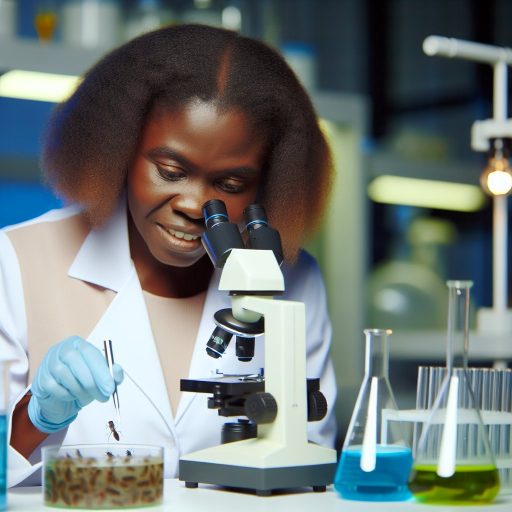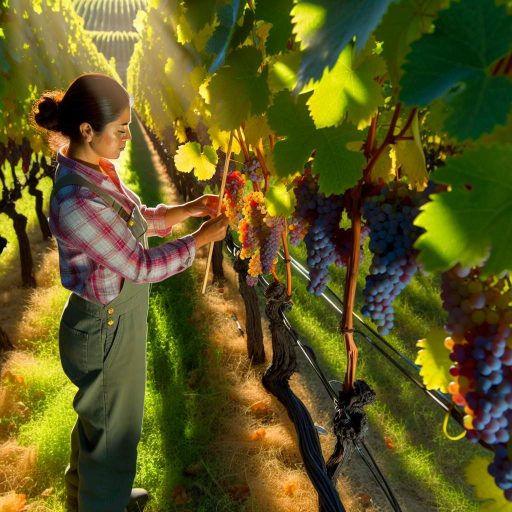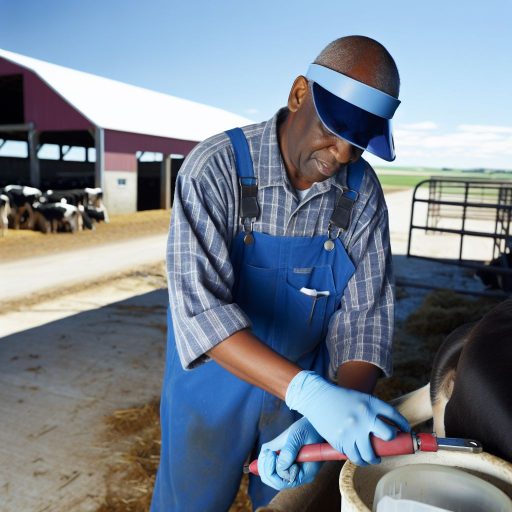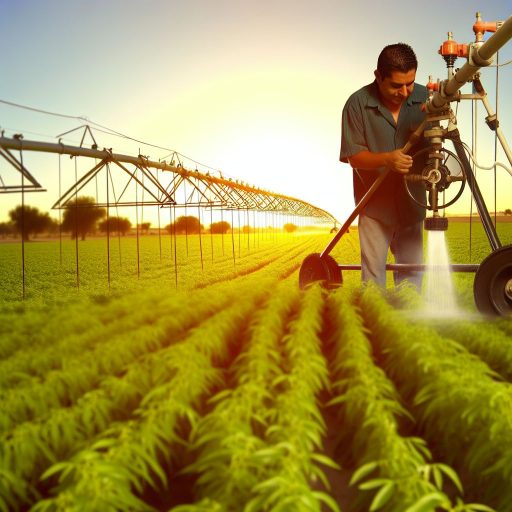Importance of Networking
Networking in the conservation science field is essential for staying informed about the latest research.
It helps professionals understand trends and opportunities.
Job Opportunities
Networking can open doors to job opportunities.
Connecting with professionals who may be looking to hire is crucial.
Collaborations
Through networking, conservation scientists can find potential collaborators.
These collaborations can involve research projects, partnerships, and funding opportunities.
Professional Growth
Networking helps professionals expand their knowledge and skills.
It leads to personal and career growth in the conservation science field.
Definition of Networking in Conservation Science
Networking in the conservation science field involves connecting with professionals to build relationships and share knowledge.
Building Relationships with Professionals
Networking is crucial for professionals in conservation science to expand their circle, share experiences, and collaborate on projects.
Importance of Networking
Networking is essential in conservation science to exchange ideas, gain new perspectives, and access resources for research and projects.
Tips for Effective Networking in Conservation Science
Attend Conferences and Workshops
Engaging in conferences and workshops allows you to meet professionals in the field, share your work, and learn from others.
Join Professional Organizations
Being part of organizations like IUCN or WCS provides networking opportunities, access to resources, and updates on industry trends.
Use Social Media Platforms
Platforms like LinkedIn or ResearchGate help you connect with experts, share your work, and stay informed about current events.
Volunteer for Conservation Projects
Volunteering allows you to meet like-minded individuals, gain hands-on experience, and build your reputation in the field.
Collaborate on Research Papers
Collaborating on papers with other researchers helps you establish connections, exchange knowledge, and enhance your research output.
Attend Networking Events
Attending networking events organized by universities or NGOs allows you to meet professionals, discuss ideas, and explore potential collaborations.
Utilize Online Forums and Groups
Joining online forums and groups related to conservation science enables you to engage with a broader audience, seek advice, and share resources.
Mentorship and Mentoring Others
Being a mentor or mentee in the field of conservation science can help you learn from experienced professionals, gain insights, and develop your skills.
Networking’s Role in Conservation Science
Networking plays a significant role in the conservation science field by fostering collaborative relationships, sharing knowledge, and enhancing professional development.
Transform Your Career Today
Unlock a personalized career strategy that drives real results. Get tailored advice and a roadmap designed just for you.
Start NowBy actively engaging in networking activities, you can expand your connections, stay updated on industry trends, and contribute to the conservation efforts effectively.
Identify key networking events and opportunities in the conservation science field
Mention of conferences, workshops, and seminars related to conservation science.
Highlight of professional organizations and online platforms for networking.
Conferences, Workshops, and Seminars
In the conservation science field, attending conferences, workshops, and seminars is crucial for networking and staying updated on the latest developments.
These events provide opportunities to connect with professionals, researchers, and experts in the field.
Some key events include:
- Conservation Science Conference – This annual event brings together conservation scientists from around the world to discuss current research, trends, and challenges in the field. It offers a platform for networking, sharing ideas, and collaboration.
- Wildlife Conservation Workshop – Organized by leading conservation organizations, this workshop focuses on wildlife conservation strategies, best practices, and case studies. It provides a great opportunity to interact with conservation professionals and learn from their experiences.
- Environmental Seminars – Many universities and research institutions host regular seminars on environmental conservation topics. Attending these seminars can help you connect with like-minded individuals, exchange knowledge, and explore potential collaboration opportunities.
Professional Organizations and Online Platforms
Joining professional organizations and utilizing online platforms are effective ways to expand your network and engage with the conservation science community.
These platforms provide a space for sharing resources, discussing ideas, and connecting with professionals worldwide.
Some key organizations and platforms include:
- Society for Conservation Biology (SCB) – SCB is a global organization dedicated to advancing the science and practice of conservation biology. It offers networking opportunities through conferences, webinars, and online forums.
- Conservation International (CI) – CI is a renowned conservation organization that focuses on protecting nature for the well-being of humanity. Joining CI’s network can connect you with conservation experts, policymakers, and practitioners.
- LinkedIn Groups – There are several LinkedIn groups dedicated to conservation science, where professionals share news, job opportunities, and research findings. Participating in these groups can help you establish valuable connections and stay informed about the latest trends in the field.
- ResearchGate – ResearchGate is a popular platform among researchers and scientists for sharing publications, collaborating on projects, and networking with peers. Creating a profile on ResearchGate can enhance your visibility in the conservation science community and facilitate networking with fellow researchers.
Delve into the Subject: Case Studies of Successful Agricultural Policies
Effective Networking Strategies in Conservation Science
When it comes to networking in the conservation science field, there are a few key strategies that can help you build valuable connections and advance your career.
Here are some tips for effective networking:
Be Proactive in Initiating Conversations
One of the most important aspects of networking is taking the initiative to start conversations with other professionals in the field.
Don’t be afraid to introduce yourself at events or reach out to someone you admire for a coffee chat.
Building relationships often starts with a simple conversation.
Set Goals for Networking Interactions
Before attending a networking event or reaching out to a potential contact, it’s helpful to set specific goals for what you hope to achieve.
This could include meeting a certain number of new people, gathering information about a specific topic, or finding a mentor in your field.
Having clear objectives can help guide your interactions and make them more productive.
Follow Up with Contacts
After you’ve made a new connection, be sure to follow up with them in a timely manner.
This could be as simple as sending a thank you email for their time or sharing an interesting article related to your conversation.
Transform Your Career Today
Unlock a personalized career strategy that drives real results. Get tailored advice and a roadmap designed just for you.
Start NowMaintaining contact with your network is crucial for building strong, lasting relationships.
Networking in the conservation science field is all about building relationships and fostering connections with other professionals.
By being proactive, setting goals, and following up with contacts, you can create a strong network that will support your career growth and development.
You Might Also Like: How to Start a Career in Agricultural Biotechnology
Strategies for Building a Strong Professional Network
Networking is crucial in the conservation science field.
It can open doors to new opportunities, collaborations, and knowledge sharing.
Here are some effective strategies to help you build a strong professional network:
- Utilize LinkedIn:
- Create a professional profile that highlights your skills, experience, and interests in conservation science.
- Connect with professionals in the field by sending personalized invitations and engaging with their posts and updates.
- Attend Networking Events:
- Participate in conferences, seminars, workshops, and other events related to conservation science to meet like-minded individuals.
- Exchange contact information with fellow attendees and follow up with them after the event.
- Engage in Online Forums and Discussions:
- Join online platforms, forums, and discussion groups focused on conservation science to connect with professionals from around the world.
- Share your insights, ask questions, and participate in conversations to establish yourself as a knowledgeable and engaged member of the community.
Creating a LinkedIn Profile and Connecting with Professionals
LinkedIn is a powerful tool for networking in the conservation science field.
Follow these tips to make the most of your profile:
- Optimize Your Profile:
- Use a professional headshot and write a compelling summary that showcases your expertise and passion for conservation science.
- List relevant skills, experiences, and achievements to attract the attention of potential connections.
- Connect with Professionals:
- Personalize your connection requests by mentioning how you admire the work of the person you are reaching out to.
- Engage with their posts and updates by commenting thoughtfully and sharing relevant content.
Attending Networking Events and Participating in Online Forums
Networking events and online forums are valuable opportunities to expand your professional network within the conservation science field.
Here’s how you can make the most of these platforms:
- Networking Events:
- Research upcoming events related to conservation science and register to attend them.
- Prepare a brief introduction about yourself and your interests in the field to engage in meaningful conversations.
- Online Forums and Discussions:
- Join reputable online platforms and forums dedicated to conservation science to connect with professionals worldwide.
- Participate actively by sharing your knowledge, asking insightful questions, and contributing to ongoing discussions.
By implementing these strategies and leveraging tools like LinkedIn, networking events, and online forums, you can cultivate a robust professional network in the conservation science field.
That network will support your career growth and development.
Explore Further: How Food Safety Specialists Ensure Compliance
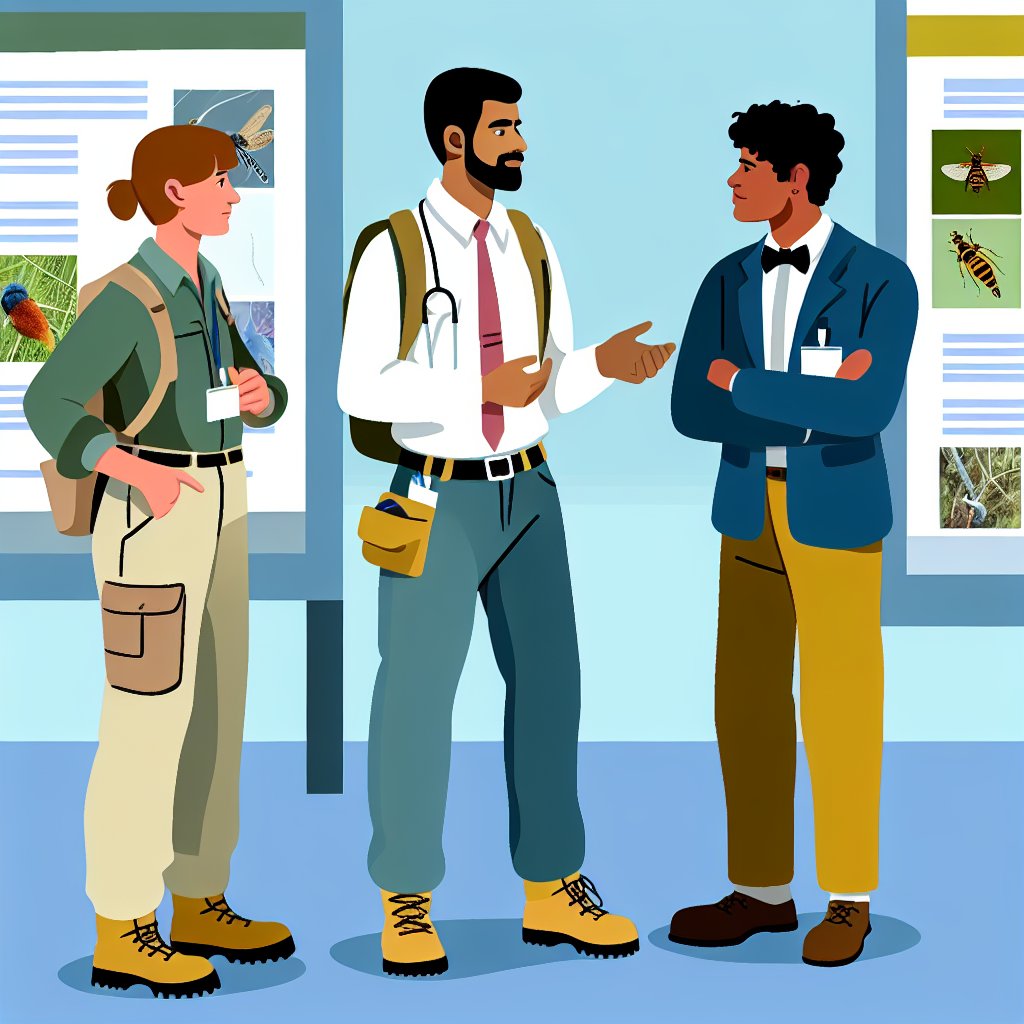
How to maintain and nurture professional relationships in the conservation science field
Stress the importance of staying in touch with contacts through email, phone calls, or meetings.
Regular communication helps to keep connections alive and build trust within the industry.
By staying updated on each other’s work, you show that you value and respect their contributions.
Sharing relevant articles or resources can also be a way to engage with your contacts.
Encourage offering help and support to others in the field to strengthen relationships
- Supporting your colleagues in their projects or research can create a sense of camaraderie.
- Offering your expertise or assistance shows that you are invested in their success.
- Volunteering your time or skills for a common cause can also foster stronger bonds.
- Building a network of support within the conservation science field can lead to collaborative opportunities.
Uncover the Details: Important Tools for Veterinary Technicians
Overcoming challenges in networking in the conservation science field
Networking in the conservation science field can be a rewarding experience.
Transform Your Career Today
Unlock a personalized career strategy that drives real results. Get tailored advice and a roadmap designed just for you.
Start NowIt also comes with its own set of challenges.
From battling shyness to finding time to connect with others, here are some tips to help you overcome these obstacles and build a strong network in the field.
Shyness
One of the most common challenges people face when it comes to networking is shyness.
It can be intimidating to approach new people.
Especially when you’re in a field as competitive as conservation science.
However, remember that everyone is there for the same reason.
To connect, share knowledge, and collaborate.
To overcome shyness, start by setting small, achievable goals for yourself.
This could be as simple as introducing yourself to one new person at an event.
Or striking up a conversation with a colleague during a coffee break.
The more you practice networking, the more comfortable you will become with it.
Lack of Confidence
Another challenge that many people face is a lack of confidence.
It can be easy to doubt your abilities.
And feel like you don’t have much to offer in a networking setting.
However, remember that everyone brings something unique to the table.
Your experiences and expertise are valuable.
To boost your confidence, take the time to prepare before networking events.
Research the attendees, practice your elevator pitch.
And set clear goals for what you want to achieve.
Remember to also focus on your strengths and the value you can bring to potential connections.
Transform Your Career Today
Unlock a personalized career strategy that drives real results. Get tailored advice and a roadmap designed just for you.
Start NowConfidence is key in networking, so believe in yourself and your abilities.
Time Constraints
With busy schedules and demanding workloads, finding the time to network can be a challenge.
However, networking is crucial in building a successful career in conservation science.
So it’s important to make it a priority.
To overcome time constraints, be strategic about how you allocate your networking efforts.
Focus on quality over quantity and prioritize events and opportunities that align with your goals.
You can also leverage technology to stay connected with your network.
Whether through social media, email, or virtual networking platforms.
Remember that networking doesn’t always have to be time-consuming.
Even a quick email or LinkedIn message can help you stay in touch with connections and nurture relationships.
By addressing common obstacles like shyness, lack of confidence, and time constraints, you can build a strong network in the conservation science field.
Remember to be proactive, set goals, and prioritize networking as a valuable investment in your career.
With practice and persistence, you can overcome these challenges.
And create meaningful connections that will support you in your professional journey.
Networking in Conservation Science
Recap of the importance of networking in the conservation science field: Networking is crucial for career advancement, knowledge sharing, and collaboration in the conservation science field.
Encouragement to start networking and building relationships with professionals in the field for career growth and development: Don’t hesitate to reach out to professionals, attend networking events, and engage with online platforms to expand your network.
Building a strong network can open up opportunities, provide mentorship, and enhance your understanding of conservation science.
Remember, networking is a two-way street, so be proactive, offer assistance, and maintain relationships to grow in the conservation science field.
Embrace networking as a valuable tool to amplify your impact, stay updated on industry trends, and collaborate with like-minded individuals.
Start networking today to pave the way for a successful and fulfilling career in conservation science!
Transform Your Career Today
Unlock a personalized career strategy that drives real results. Get tailored advice and a roadmap designed just for you.
Start NowAdditional Resources
Forest Field Research Methods in Suriname | College of Forest …
Erika J Foster, PhD – Director of Soils Research & Conservation …
[E-Books for Sale]
The Big Book of 500 High-Paying Jobs in America: Unlock Your Earning Potential
$19.99 • 500 High-Paying Jobs • 330 pages
Explore 500 high-paying jobs in America and learn how to boost your career, earn more, and achieve success!
See All 500 High-Paying Jobs of this E-Book
1001 Professions Without a Degree: High-Paying American Jobs You Can Start Now
$19.99 • 1001 Professions Without a Degree • 174 pages
Discover 1001 high-paying jobs without a degree! Unlock career tips, skills, and success strategies for just $19.99!

